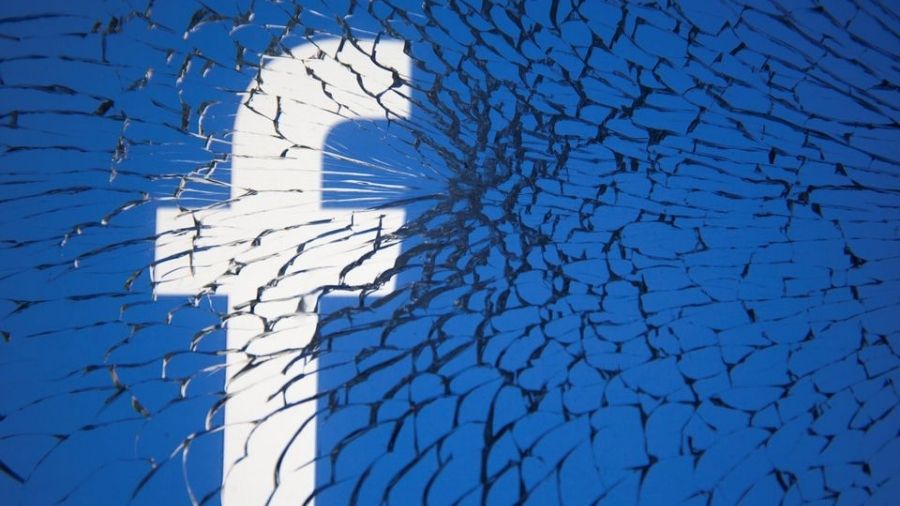Russia said it would block Facebook for excluding state media and CNN said it would stop broadcasting in Russia after a new law punishing "fake news" raised the stakes in Moscow's fight with foreign corporations.
Friday marked an escalation in the dispute that began after the invasion of Ukraine. Russia blocked a wave of media companies and new, big names announced they were shutting down Russia sales, including Microsoft Corp and video game maker Electronic Arts Inc.
Russia said that Meta Platforms Inc's Facebook was being blocked for restricting state-backed channels, and it also blocked websites of the BBC, Deutsche Welle and Voice of America for what it said was false information about the war in Ukraine. Twitter will also be blocked, Russian media said.
The BBC said it would temporarily suspend its work in Russia after the introduction of a new law that could jail anyone found to be intentionally spreading "fake" news.
AT&T Inc's CNN is stopping broadcasts to "evaluate the situation and our next steps moving forward," a spokesperson said.
Meta's head of global affairs, Nick Clegg, said the company would continue to do everything possible to restore its services.
"Soon millions of ordinary Russians will find themselves cut off from reliable information, deprived of their everyday ways of connecting with family and friends and silenced from speaking out," he said, in a statement posted on Twitter.
Many Russians have downloaded VPN software to avoid state restrictions, but internet provider Cogent, which said it was the second-largest carrier out of Russia, disclosed plans to cut service, partly to avoid being used for cyberattacks.
A slew of major Western brands in a broad range of industries has exited from Russia. Some of the best known have sharply rebuked Moscow for the attack on Ukraine. Others have described reacting to circumstances, including luxury goods maker LVMH which on Friday said it would temporarily shut 124 shops in Russia.
Canadian Tire also announced it would temporarily close 41 Russian stores of its Helly Hansen outerwear and luggage group, and private jet maker Bombardier Inc said it had suspended all activities with Russian clients, adhering to international laws.
Shipping and supply-chain issues have made it difficult to work in Russia, as well. Companies form Royal Dutch Shell to Apple Inc to Toyota Motor Corp have taken actions from stopping sales and operations to exiting completely. Agricultural commodity merchant Louis Dreyfus announced suspension of operations in Russia on Friday.
NO EASY ANSWERS
Russian First Deputy Prime Minister Andrei Belousov laid out options for foreign companies on Friday: stay in the country, exit entirely or hand over their holdings to local managers until they return.
No route comes without risks. Those staying could face a backlash in Western markets where the public has rallied to Ukraine's cause, those transferring shares could be handing over the keys with few guarantees, while those quitting may face a big loss at best, or might have to sell for a nominal sum.
"It's a complicated process," said Darren Woods, chief executive of U.S. energy company Exxon Mobil Corp, which is exiting oil and gas investments that involve partnerships with Russia's Rosneft and others worth $4 billion.
Companies have had little time to prepare.
Russia's invasion - which Moscow calls a "special operation" - prompted the United States and Europe to impose swift and sweeping sanctions, affecting everything from global payments systems to a range of high-tech products.
"Western companies probably haven't lost so much money so quickly due to geopolitics since the Shah was overthrown in Iran," said Renaissance Capital chief economist Charlie Robertson, referring to the Islamic revolution more than four decades ago that led to an exodus of Western businesses.
STAYING PUT
Yet some companies plan to keep going. Italian tyre maker Pirelli said it had set up a "crisis committee" to monitor developments but did not expect to halt production at either of its two Russian plants.
For companies packing up, the Russian first deputy prime minister said a fast-track bankruptcy plan "will support the employment and social well-being of citizens so that bona fide entrepreneurs can ensure the effective functioning of business."
So far global companies, banks and investors have announced they have exposure in some form to Russia of more than $110 billion. That amount could rise.
BASF SE the world's largest chemicals group, said it was halting new business in Russia and Belarus, except for food production for humanitarian causes. It also hinted at the minefield of new rules sanctions have introduced.
"BASF will only conduct business in Russia and Belarus that fulfils existing obligations in accordance with applicable laws, regulations and international rules," it said.
Swiss food giant Nestle SA, maker of KitKat bars and Nescafe coffee, said it was halting advertising in Russia, while Swiss watchmaker Swatch Group said it would continue operations in Russia but would put exports on hold.
Deutsche Bank said it had been stress-testing its operations given its big technology centre in Russia but was assured it could run its everyday business globally.
The German lender had opened a new office in Moscow in December, a move it said at the time represented "a significant investment and commitment to the Russian market."











